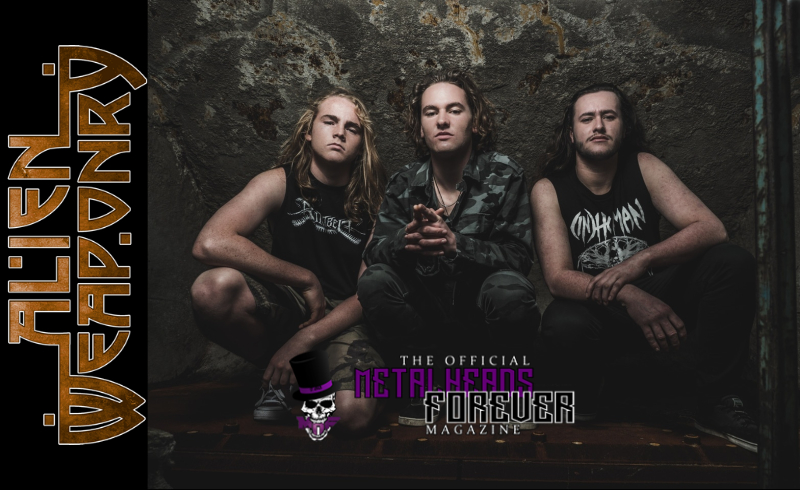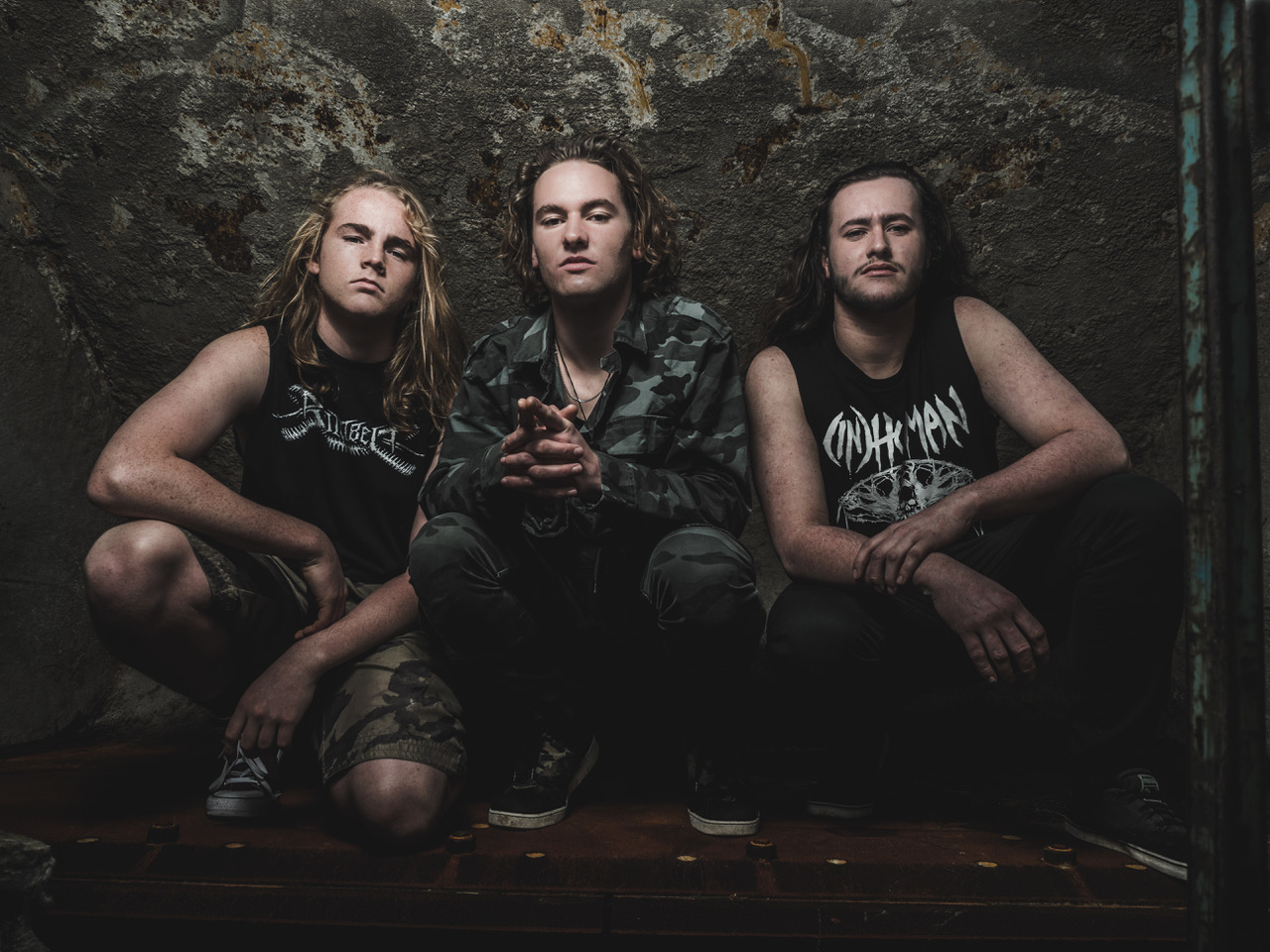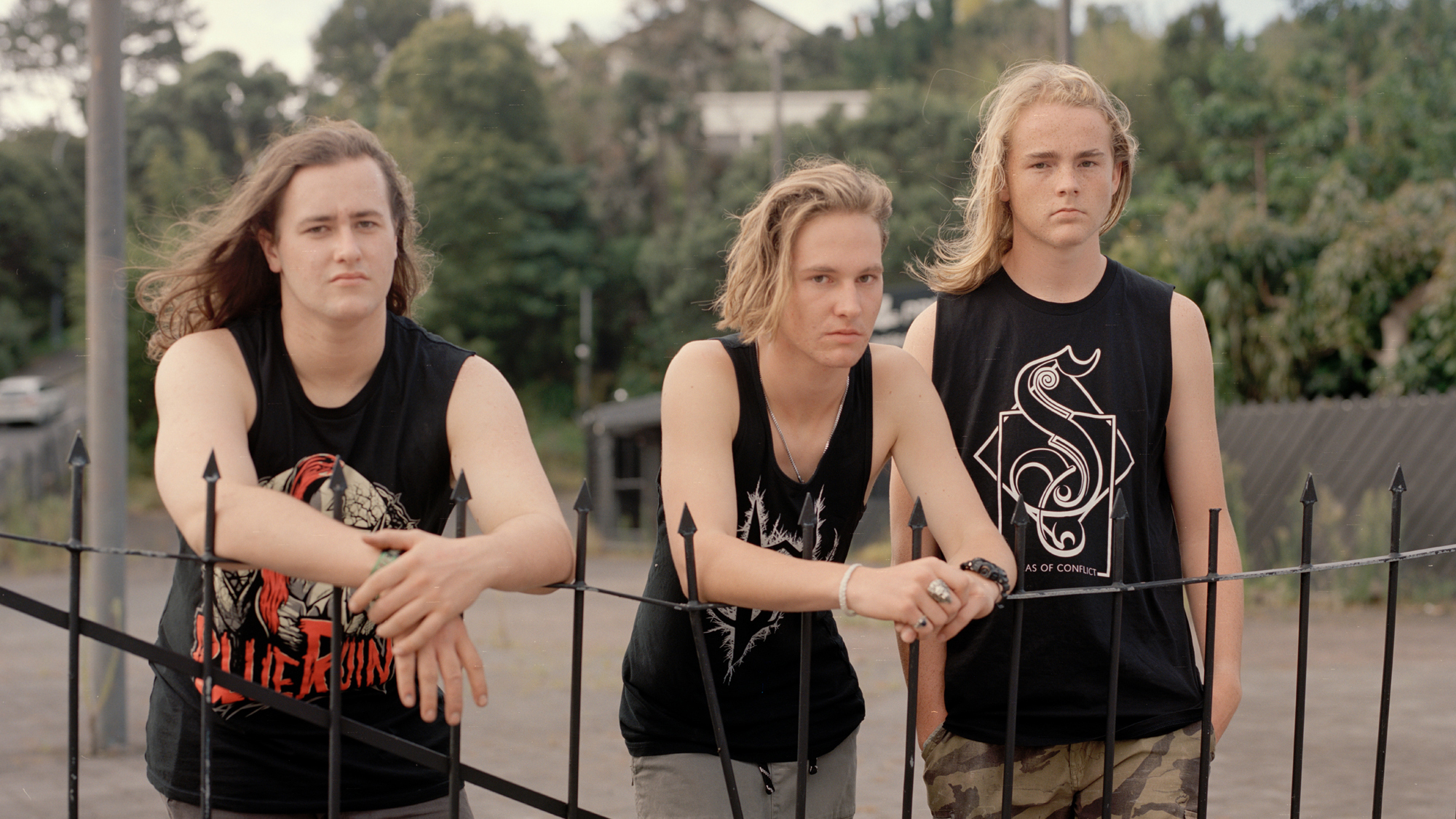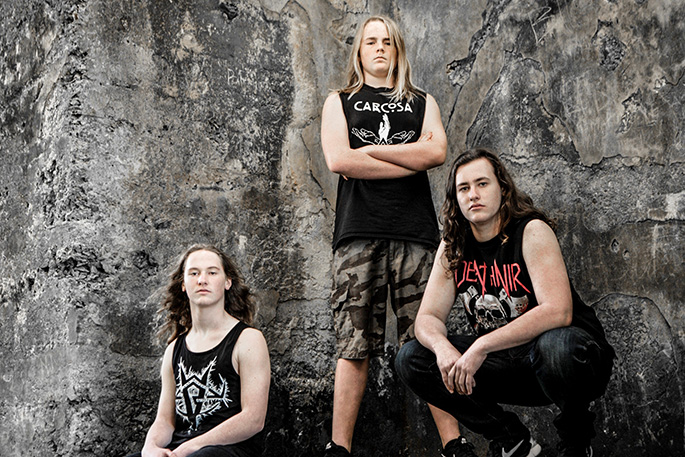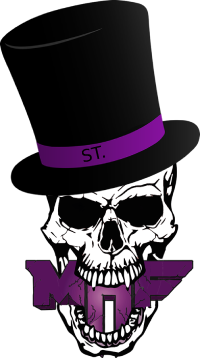Interview With Alien Weaponry
By Lilith
So tell us about your musical upbringing. I’m curious as to what might have inspired your 8 and 10-year-old selves to form the band?
Me and my brother grew up listening to all kinds of music from Bob Marley to Metallica, Rage Against the Machine, Pink Floyd, and I was inspired to play guitar by Stevie Ray Vaughan.We had a DVD of his show Live at the El Mocambo and I must have watched it about a thousand times.
We also had instruments around the house – our Dad was a guitarist and used to play in bands, and as well as guitars we had a piano, drums and even a harpsichord for a while. So it was just a normal part of growing up to pick up an instrument and play, or have a jam with whoever was around.
What did you jam into back then? You know it’s really cool of you to indulge your linguistic diversities with the music and drawing on traditions as in the Māori haka war-dance in your shows. Your locals must be very proud.
When we first started playing, we would play all the classic Metallica and Black Sabbath songs, but we never really played a lot of covers, we always liked making up our own stuff. Henry and I went to a kura kaupapa Maori (total immersion Maori school) when we were young, but we only started writing in Te Reo in 2015. It’s been a part of what we do ever since, and has definitely been one of the best things we have incorporated into our music. It feels really natural and I feel like it helps us spread Maori culture worldwide not just in New Zealand.
Well, it has been an unnecessary yet “on the fleek” ritual of pinpointing musical groups into certain genres, isn’t it? As for AW, what do you think about the various monikers imposed as in Tribal Groove, Māori Thrash etc??
Even though we think it’s super cool that our fans find our music unique enough to want to give it its own genre, we try to stay clear of putting labels on our music. We like to keep our music open to all options and influences.
What in particular made you embrace the roots of Thrash Metal over everything else that are equally popular these days?
I suppose that we naturally started jamming thrash right from the start. Early influences included Metallica, Anthrax and others alike. We enjoy the vibe thrash gives us on stage and the way it works with groove elements that we include when writing our material.
Well, the last band that I had a conversation with before you guys were Sodom and you might know that they’re essentially called an “Anti-War” band. Since you guys have been political with your lyrics and writing about war as well, I wonder if you look forward to making that a signature of your band too?
War and conflict is definitely a major theme in our song topics, and the historical events we sing about had a big impact on New Zealand society and politics. But rather than being anti war, we promote awareness of history, as there are many people in NZ (and probably other parts of the world) who are unaware of what happened here in the past. If people know about those things, they can understand why some things are the way they are today and hopefully learn and move on to be better.
Although we definitely do not promote war I wouldn’t call ourselves an anti war band – we sing about lots of other things too – like social media, social anxiety and depression, fighting with friends, the hypocrisy of teachers.
Tell us about the Māori traditional themes that you focused on while making the album. Do you mind telling us the story of your great great great Grandfather behind the track “Rū Ana Te Whenua”?
We didn’t set a particular theme when writing this album but we did write a lot of songs about NZ history and also personal battles we have gone through. So the theme of conflict evolved.
The song Rū Ana Te Whenua is a tribute to our great great great grandfather who fought in the battle of Gate Pa (Pukehinahina) in 1864. There were 1700 crack British troops and about 230 Māori from several different iwi (sub-tribes), including Ngati Pikiao (our tribe). Our ancestor Te Ahoaho was among them.
The Māori dug themselves into underground bunkers and withstood 24 hours of relentless cannon fire – the heaviest artillery bombardment the British army has ever delivered. When the British invaded the pa, assuming everyone was dead or had run off, the Māori warriors emerged from the underground bunkers and defeated the British.
They didn’t have cannons and guns, so they had to wait until the British were at close range in order to defeat them with traditional weapons. The use of trench warfare was at the time not something the British were familiar with (although many armies later adopted it in World War I and II). So they used cunning and patience to deliver a crushing defeat to the 1700 strong British forces, which changed the course of history.
You’ve won numerous competitions, cultural awards, topped Spotify charts – and you’re the youngest to be signed to Napalm’s roster. Among all that, and the shows, the tours – how have you been managing your academics?
In New Zealand we’re allowed to leave school at age 16 so Ethan is the only one left at school. He manages to get school work done in between tours and NZ shows. He’s on his last year now so almost done.
So what’s coming up next for the band? What’s keeping you busy these days?
We are working on new material at the moment which we plan to get out for you guys pretty soon, so stay tuned to our Facebook page for that. We are currently preparing for tours of Australia and New Zealand in March – then we return to America (including Mexico, USA and Canada) in May for 4 festivals and 12 headline shows. After that, we head back to Europe for June, July and August for a whole heap of festivals and other shows. The full itinerary hasn’t been announced yet, but will be soon.
Thanks a lot for talking to us. Leave a message for your fans!
Thanks heaps guys for supporting our message and listening to our music! Can’t wait to catch you all at our up coming shows in 2019!
MHF Magazine/Lilith

